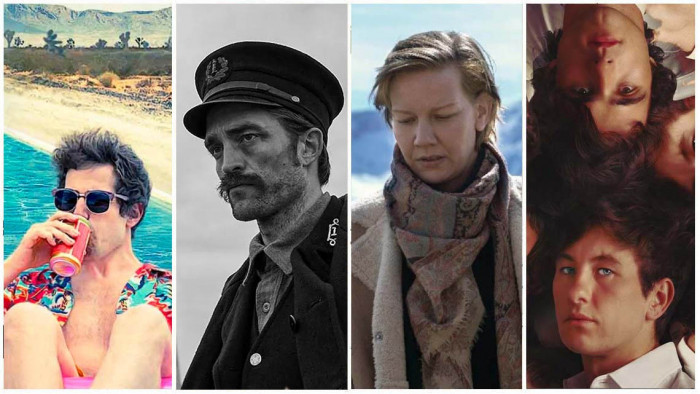Boris Johnson's top 15 pieces of foreign diplomacy
If you need a delicate touch & cultural sensitivity, Boris is your man


There’s no doubt about it. When you think of someone with the delicate lightness of touch, the cultural sensitivity, the ability to seamless adapt and gently cajole people into subtly seeing things from your point of view, the first person you think of is Boris Johnson.
Because, why else would Theresa May have appointed him as Foreign Minister?
As Boris exits his role, it really is a loss to the diplomatic community, because Boris has got everything you want in this particular policy field.
Not convinced? Just look at the evidence.
Tackling the Germans' domination of Europe
A gentle, nuanced approach, with patience and timing given the utmost priority.
Maintaining the Special Relationship

On Barack Obama’s stance opposing Brexit: “[It is] incoherent. It is inconsistent, and yes it is downright hypocritical.”
On Barack Obama removing a bust of Churchill (one of many that went) from the White House: “A symbol of the part-Kenyan President’s ancestral dislike of the British empire - of which Churchill had been such a fervent defender.”
On George Bush: “A cross-eyed Texan warmonger, unelected, inarticulate, who epitomizes the arrogance of American foreign policy.”
On Hillary Clinton: “She’s got dyed blonde hair and pouty lips, and a steely blue stare, like a sadistic nurse in a mental hospital.”
On Donald Trump: “The only reason I wouldn’t go to some parts of New York is the real risk of meeting Donald Trump.”
Dealing with Turkey, the gateway between Europe and Asia

His entry, in a 2016 Spectator competition to write an offensive limerick about Turkish President Recep Tayyip Erdogan, which won:
There was a young fellow from Ankara
Who was a terrific wankerer.
Till he sowed his wild oats
With the help of a goat
But he didn’t even stop to thankera.
Jousting with Japan
One must always tread carefully in competition, knowing that it is best never to steamroller your opponent, simply to reach the finish line more quickly.
Dealing carefully with the world's second-biggest economic power

In 2005: “Chinese cultural influence is virtually nil, and unlikely to increase…”
In 2008: “Virtually every single one of our international sports were invented or codified by the British. And I say this respectfully to our Chinese hosts, who have excelled so magnificently at Ping-pong. Ping-pong was invented on the dining tables of England in the 19th century and it was called Wiff-waff!”
Dealing with the difficult issues in Syria

On Syrian dictator Bashar al-Assad, who stands accused of war crimes and crimes against humanity in The Telegraph: “I suppose it is bizarre to feel such joy at the military success of one of the vilest regimes on earth. But I cannot conceal my elation as the news comes in from Palmyra and it is reported that the Syrian army is genuinely back in control of the entire Unesco site… Hooray, I say. Bravo – and keep going.”
Maintaining the Union

On SNP leader and First Minister for Scotland Nicola Sturgeon:
“A fox in a henhouse”
“A jewel thief”
“King Herod”
A “voracious weevil”
“Lady Macbeth”
“Atilla the Hun”
Showing cultural sensitivity to Pacific islands

In a 2006 Telegraph column: “For 10 years we in the Tory Party have become used to Papua New Guinea-style orgies of cannibalism and chief-killing, and so it is with a happy amazement that we watch as the madness engulfs the Labour Party.”
Jean L Kekedo, Papua New Guinea’s High Commissioner in London at the time said: “I consider the comments, coming from a senior British MP very damaging to the image of Papua New Guinea and an insult to the integrity and intelligence of all Papua New Guineans. I wish to state that I am shocked and appalled by such comments from a seemingly well-educated person of very high standing, in fact the alternative minister for higher education in the House of Commons.”
Understanding the complex nature of the problems in the Middle East

In the Telegraph, 2003: “The Americans were perfectly happy to go ahead and whack Saddam merely on the grounds that he was a bad guy, and that Iraq and the world would be better off without him; and so indeed was I.”
Showing cultural sensitivity to African nations

2002 Telegraph article on Tony Blair’s visit to the Democratic Republic of Congo: “No doubt the AK47s will fall silent, the pangas will stop their hacking of human flesh, and the tribal warriors will all break out in watermelon smiles to see the big white chief touch down in his big white British taxpayer-funded bird.”
Dealing sensitively with Europe's history

In a Telegraph column in May 2016 he argued that the past two millennia have seen repeated attempts to unify Europe, similarly to the Romans, and compared the EU to the Nazis: “Napoleon, Hitler, various people tried this out, and it ends tragically. The EU is an attempt to do this by different methods.”
Showing cultural sensitivity with regard to use of language

Reported remark, while visiting Uganda, to Swedish Unicef workers and their black driver, in The Observer, 2003: “Right, let’s go and look at some more piccaninnies.”
The hugely complex issue of Israel & Palestine - probably best not to take sides

In The Guardian, 2015: “During his three-day trade mission, Johnson repeatedly criticised calls for a boycott of Israeli goods, describing the campaign as “completely crazy” and promoted by a “few lefty academics” in corduroy jackets pursuing a cause.”
Maintaining relationships closer to home

In a 2007 GQ article, on Portsmouth: “Here we are in one of the most depressed downs in southern England, a place that is arguably too full of drugs, obesity, underachievement and Labour MPs.”
Maintaining relationships closer to home (part two)

An October 2004 editorial in The Spectator, which he approved: [People in Liverpool] “cannot accept that they might have made any contribution to their misfortunes, but seek rather to blame someone else for it, thereby deepening their sense of shared tribal grievance about the rest of society”.
It added that Liverpudlians “wallow” in their “victim status”, saying it contributes to the “deeply unattractive psyche” of many in the city.
He also added that the city made a scapegoat of police in the wake of the Hillsborough disaster and that they refused to accept the part played “by drunken fans at the back of the crowd who mindlessly tried to fight their way into the ground.”
(Images: Rex)
Latest
Related Reviews and Shortlists









